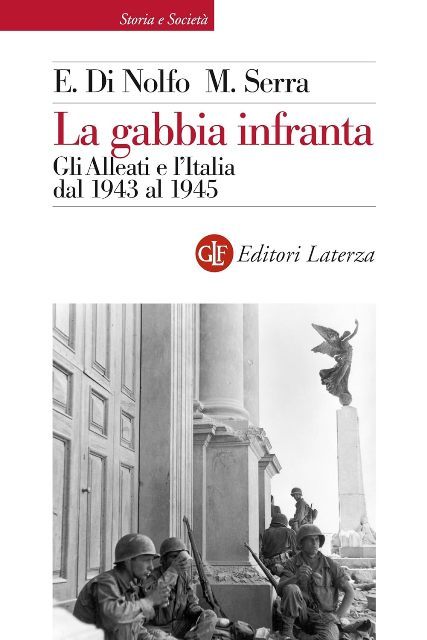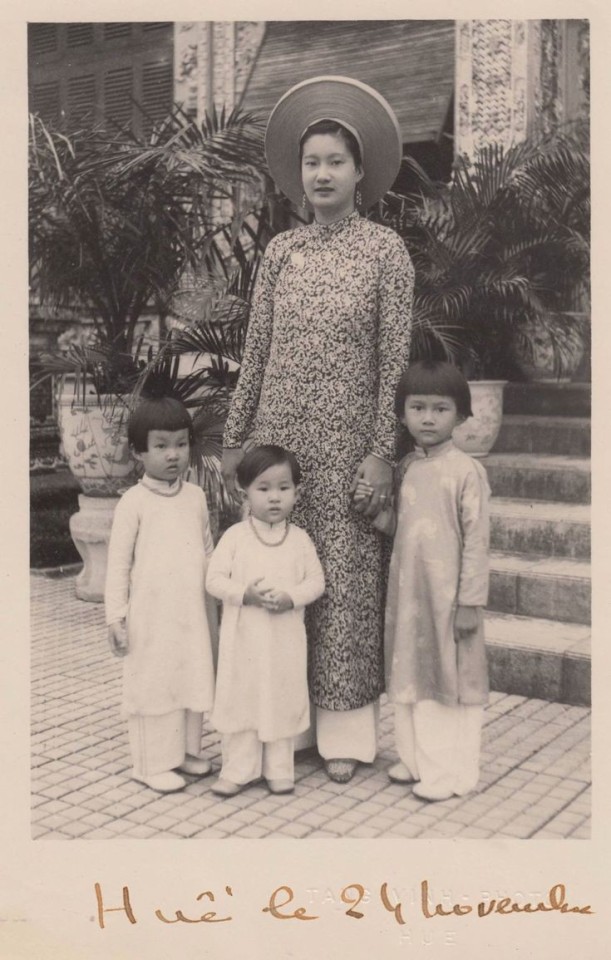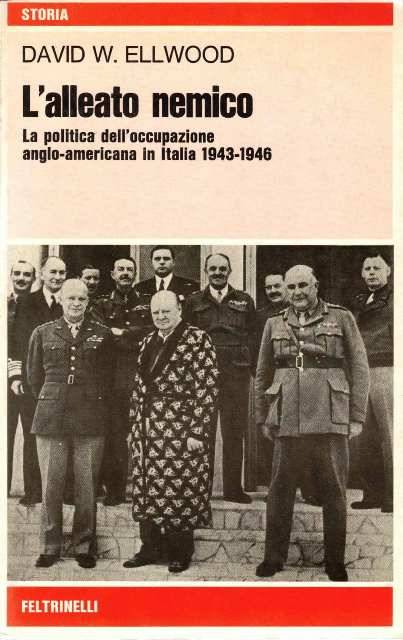#Badoglio
Text
Le recriminazioni italiane si concentravano sulle modalità di applicazione del controllo alleato
Nei paragrafi iniziali di questo capitolo si sono analizzate le politiche e gli atteggiamenti degli anglo-americani nei confronti del governo italiano, nel tentativo di approfondire la comprensione del ruolo svolto dai tre poli alleati nell’evoluzione del panorama politico-istituzionale italiano nel corso dei cruciali mesi compresi tra l’installazione del governo militare e l’arrivo alla…

View On WordPress
#1943#1944#alleati#americani#Badoglio#controllo#fascisti#governi#Guerra#inglesi#Ivanoe Bonomi#Marco Maria Aterrano#Palmiro Togliatti#partigiani#Regno#Resistenza#Sud#tedeschi
0 notes
Text
Le recriminazioni italiane si concentravano sulle modalità di applicazione del controllo alleato
Nei paragrafi iniziali di questo capitolo si sono analizzate le politiche e gli atteggiamenti degli anglo-americani nei confronti del governo italiano, nel tentativo di approfondire la comprensione del ruolo svolto dai tre poli alleati nell’evoluzione del panorama politico-istituzionale italiano nel corso dei cruciali mesi compresi tra l’installazione del governo militare e l’arrivo alla…

View On WordPress
#1943#1944#alleati#americani#Badoglio#controllo#fascisti#governi#Guerra#inglesi#Ivanoe Bonomi#Marco Maria Aterrano#Palmiro Togliatti#partigiani#Regno#Resistenza#Sud#tedeschi
0 notes
Text
Le recriminazioni italiane si concentravano sulle modalità di applicazione del controllo alleato
Nei paragrafi iniziali di questo capitolo si sono analizzate le politiche e gli atteggiamenti degli anglo-americani nei confronti del governo italiano, nel tentativo di approfondire la comprensione del ruolo svolto dai tre poli alleati nell’evoluzione del panorama politico-istituzionale italiano nel corso dei cruciali mesi compresi tra l’installazione del governo militare e l’arrivo alla…

View On WordPress
#1943#1944#alleati#americani#Badoglio#controllo#fascisti#governi#Guerra#inglesi#Ivanoe Bonomi#Marco Maria Aterrano#Palmiro Togliatti#partigiani#Regno#Resistenza#Sud#tedeschi
0 notes
Text
Le recriminazioni italiane si concentravano sulle modalità di applicazione del controllo alleato
Nei paragrafi iniziali di questo capitolo si sono analizzate le politiche e gli atteggiamenti degli anglo-americani nei confronti del governo italiano, nel tentativo di approfondire la comprensione del ruolo svolto dai tre poli alleati nell’evoluzione del panorama politico-istituzionale italiano nel corso dei cruciali mesi compresi tra l’installazione del governo militare e l’arrivo alla…

View On WordPress
#1943#1944#alleati#americani#Badoglio#controllo#fascisti#governi#Guerra#inglesi#Ivanoe Bonomi#Marco Maria Aterrano#Palmiro Togliatti#partigiani#Regno#Resistenza#Sud#tedeschi
0 notes
Text
9 novembre 1925, Somalia. A El Bur il capitano Carolei ucciso a tradimento da Omar Samantar
9 novembre 1925, Somalia. A El Bur il capitano Carolei ucciso a tradimento da Omar Samantar
Siamo nel pieno della campagna di pacificazione della Somalia operata dal governatore Cesare Maria de Vecchi di Val Cismon. Assicurati i capisaldi costieri di Alula, di Bender Cassim, dove venne impiantata una nuova stazione radiotelegrafica, di Hafun e del faro Crispi a capo Guardafui, si poteva dare inizio le operazioni di polizia coloniale nell’interno.
ISCRIVITI AL CANALE TELEGRAM “ITALIA…

View On WordPress
#badoglio#Cesare Maria de Vecchi di Val Cismon#colonie#dubat#El Bur#Franco Carolei#Omar Samantar#Osman Mahamud#paicificazione#somalia
0 notes
Photo

Generale Angelo Gatti - (Capua, 9 gennaio 1875 – Milano, 19 giugno 1948)
GeneraliControstoria dei vertici militari che fecero e disfecero l'Italia
Di Domenico Quirico · 2017
1 note
·
View note
Photo










LILELO (Little Leisure Lodge), Grazzano Badoglio, Asti, Italy,
Atelier LAVIT
#art#design#architecture#interiors#lodge#lilelo#leisure#asti#italy#grazzano badoglio#piedmont#atelier lavit#hospitality#cabin#carpentrywork#timberwork#nature
59 notes
·
View notes
Text

Empress Nam Phuong of Vietnam with her three eldest children; Princess Puhong Mai (1937 - 2021), Princess Puhong Lien (1939) and Crown Prince Bao Long of Vietnam (1936 - 2007)
#empress nam puhong of vietnam#puhong mai duchess of addis abeba and marchioness of sabotino#princess puhong lien of vietnam#crown prince bao long of vietnam#vietnamese imperial family#vietnamese history#nobility#house of nguyen#house of badoglio
31 notes
·
View notes
Photo

The A Frame cabins at LILELO - Little Leisure Lodge in Grazzano Badoglio, Italy.
Designed by @atelierlavit Photographs by @silvialavit & @__daniel_mazza__ More photos on @cabinporn.
244 notes
·
View notes
Text
L’adozione di un new deal per l’Italia nell’autunno 1944 segnava l’avvio di una politica morbida nei confronti degli italiani
Lo scenario profilatosi con il radicale sconvolgimento degli equilibri tra le potenze alleate sul continente e l’incombente sconfitta dell’Asse invitavano gli anglo-americani a riconsiderare la politica restrittiva riservata all’Italia nel corso del primo anno di occupazione. Dopo aver ottenuto, tra polemiche, contrasti e sorprese, la formazione del governo rappresentativo chiesto agli italiani…

View On WordPress
#1944#1945#alleati#Badoglio#fascisti#Gran Bretagna#Guerra#Italia#Marco Maria Aterrano#Mediterraneo#partigiani#Regno#Stati Uniti#Sud#tedeschi
0 notes
Text
L’adozione di un new deal per l’Italia nell’autunno 1944 segnava l’avvio di una politica morbida nei confronti degli italiani
Lo scenario profilatosi con il radicale sconvolgimento degli equilibri tra le potenze alleate sul continente e l’incombente sconfitta dell’Asse invitavano gli anglo-americani a riconsiderare la politica restrittiva riservata all’Italia nel corso del primo anno di occupazione. Dopo aver ottenuto, tra polemiche, contrasti e sorprese, la formazione del governo rappresentativo chiesto agli italiani…

View On WordPress
#1944#1945#alleati#Badoglio#fascisti#Gran Bretagna#Guerra#Italia#Marco Maria Aterrano#Mediterraneo#partigiani#Regno#Stati Uniti#Sud#tedeschi
0 notes
Text
L’adozione di un new deal per l’Italia nell’autunno 1944 segnava l’avvio di una politica morbida nei confronti degli italiani
Lo scenario profilatosi con il radicale sconvolgimento degli equilibri tra le potenze alleate sul continente e l’incombente sconfitta dell’Asse invitavano gli anglo-americani a riconsiderare la politica restrittiva riservata all’Italia nel corso del primo anno di occupazione. Dopo aver ottenuto, tra polemiche, contrasti e sorprese, la formazione del governo rappresentativo chiesto agli italiani…

View On WordPress
#1944#1945#alleati#Badoglio#fascisti#Gran Bretagna#Guerra#Italia#Marco Maria Aterrano#Mediterraneo#partigiani#Regno#Stati Uniti#Sud#tedeschi
0 notes
Text
L’adozione di un new deal per l’Italia nell’autunno 1944 segnava l’avvio di una politica morbida nei confronti degli italiani
Lo scenario profilatosi con il radicale sconvolgimento degli equilibri tra le potenze alleate sul continente e l’incombente sconfitta dell’Asse invitavano gli anglo-americani a riconsiderare la politica restrittiva riservata all’Italia nel corso del primo anno di occupazione. Dopo aver ottenuto, tra polemiche, contrasti e sorprese, la formazione del governo rappresentativo chiesto agli italiani…

View On WordPress
#1944#1945#alleati#Badoglio#fascisti#Gran Bretagna#Guerra#Italia#Marco Maria Aterrano#Mediterraneo#partigiani#Regno#Stati Uniti#Sud#tedeschi
0 notes
Text
Era meglio morire da piccoli
Stiamo vivendo un periodo relativamente ai massmedia e al boccalonismo collettivo, che se ci fosse ora la guerra del Vietnam sarebbero lì tutti a scrivere serissimi che Ho Chi Min è un pazzo criminale (non lontano dalla realtà ma useless), ma ora mandiamo 14 (quattordici) Leopardi al legittimo governo del Vietnam del Sud e l'offensiva finale che spazzerà via il nemico è alle porte.
(Non è stare dalla parte del satrapo Putin: è considerare l'indifendibilità morale oltre che militare di ciò che ci stan chiedendo di preservare. Non è voltare la gabbana e uscire dalle alleanze ad cazzum, a mo' furbacchione perdente Badoglio: è indicare che la NOSTRA Nato è guidata da (Dems.) deficienti perdenti che guardano il dito e VOLUTAMENTE trascurano il nemico vero, la Cina).
58 notes
·
View notes
Text
A Roma poster del bando del 14 ottobre 1935 per l'abolizione della schiavitù in Etiopia insegnano la storia alla giunta capitolina
A Roma poster del bando del 14 ottobre 1935 per l’abolizione della schiavitù in Etiopia insegnano la storia alla giunta capitolina
Oggi nel 1935 il Regio Esercito ai comandi del Generale Emilio De Bono entrava vittorioso in Adua. Primo atto nella città etiope conquistata fu il BANDO DI SOPPRESSIONE DELLA SCHIAVITÙ’ (qui il testo integrale). Schiavitù già abolita in Somalia molto anni prima dal governo italiano.E proprio negli scorsi giorni nella capitale sono comparsi, come 87 anni fa nella vie di Adua, grossi poster…

View On WordPress
#badoglio#bando#blocco studentesco#colonialismo#colonie#De Bono#etiopia#fascismo#guerra d&039;etiopia#roma#soppressione schiavitù#vie
0 notes
Text
"In Italy, there was considerable dissension between Britain and the United States over the nature of the provisional government. The British, considering themselves to have the paramount interest in Italy, claimed the right to play the dominant role in organizing the new government; FDR refused to concede this. But both Western Allies agreed that the Left should not be allowed to fill the gap left by the collapse of Mussolini’s regime and gradually retreating German occupation forces in the north; despite the publicly stated goal of “defascistization,” both British and American officers found it far easier in practice “to leave existing officeholders at their posts,” and the British (soon imitated by the Americans) used “the existing administrative system, including the police.” Only the socialists were strongly in favor of totally purging fascists from the administration, and even the Communist Party was “lukewarm” on the subject.[149]
The primary dispute between the Western Allies concerned Churchill’s desire to establish a reactionary regime under King Victor Emmanuel III and Marshal Badoglio (a fascist collaborator until 1943), as the “sole barrier to ‘rampant Bolshevism’.”[150] Immediately following Roosevelt’s March 1944 demand that Badoglio be removed because of his unpopularity, Stalin came to Churchill’s aid by recognizing Badoglio’s government; shortly thereafter the Communist Party announced its intent to participate in the government with no conditions.[151]
Occupation authorities banned electoral activity “during the period of military government,” and the military authorities complied with Badoglio’s request “to censor all criticism of the king, the government, and the army.”[152]
(...)
Italian antifascist forces and their base of public support were predictably dissatisfied with this arrangement. Badoglio and Victor Emmanuel
were universally regarded as remnants of the equally widely hated fascist order. From the moment they signed the “long surrender,” until the end of the year, opposition to the Badoglio government grew in intensity as part of the sustained political crisis that characterized Italian politics for the next two years.[154]
With the backing of Stalin and the Comintern, PCI leader Togliatti was able to enforce a non-revolutionary and cooperativist line over the objections of a much more radical rank and file. However, he did not purge the Party’s mass membership of dissidents — a policy that left it ideologically quite diverse and laid the way for the future emergence of Eurocommunism.[155]
When the Allies entered Rome in June 1944, the Committee of National Liberation refused to accept Badoglio as head of government. Churchill was furious, and — joined by Stalin — raised the issue of whether this was even legal under the terms of the surrender. But the new prime minister, Bonomi — former head of the Committee of National Liberation and a moderate constitutional monarchist — excluded Badoglio from the Cabinet, with the approval of the United States.[156]
Pietro Nenni’s Socialist Party and the leftist Action Party both soon became disaffected from the Bonomi government over its lackadaisical approach to defascistization, although the Communist Party remained neutral. Meanwhile the United States finally and unambiguously won the competition for influence in Italy, as Bonomi developed closer ties with Roosevelt and expressed his desire to be integrated into Washington’s vision of a postwar economic order.[157]
When Allied forces reached Rome, leftist antifascist partisans got considerably harsher treatment than fascist military and police forces had received in the south.
To the Allied soldiers reaching the Rome region the experience was strange indeed. Armed Italians, often in red shirts, waving revolutionary banners, greeted them, frequently after they had set up their own local administrations. The Allied armies pushed some Partisans aside, and even threatened them with the firing squad; they arrested many and threw them into prisons. “The problem is a novel one and is bound to be met with in further intensity the further north the advance goes,” one political officer reported in June, and whether these men were elected or not, Anglo-American officers decided, the Partisans would have to place themselves under occupation authority. The basic policy urged “tact and sympathy” but the Partisans were to surrender their arms; if possible, employment was to be found for former “patriots,” as the military authorities preferred calling them. Indeed, the Occupation followed the carrot and stick policy, those Partisans refusing to hand in arms facing prison, those cooperating being given special food rations and, if available, jobs, though not usually in the army and rarely in the police. Unemployed, the Partisan was a “menace,” armed a danger: “One thinks of the troubles of Yugoslavia and Greece in this connection,” one regional commander observed to his colleagues.[158]
The Western Allies also faced the problem of how to deal with CLNAI partisans in the north, which was considerably more complicated because they were more numerous, and were directly engaged in combat with German forces.
The problem of the Resistance, the Western leaders understood by the end of summer 1944, was not in controlling that small part of it liberated in the Rome area, but in reducing the potential danger that the very much larger groups still on Nazi-held territory posed.[159]
The partisans had organized a strike wave in the industrial cities in late 1943, in summer 1944 were tying down a sizeable German combat force, and considered themselves the legitimate governing authority in the region.[160] The British and Americans greatly feared that, in the event the German occupation forces withdrew, leftist partisans would take over the northern cities before Anglo-American military forces could move in. While the Communist Party was willing to appease the Western Allies, the socialists threatened to create a socialist separatist regime in the north after German withdrawal — a position that contributed greatly to their popularity compared to the communists.[161]
Throughout the summer [the Allies] sharply reduced the quantity of arms dropped to the Resistance, which had never been substantial in the first place. For purely military reasons — the Resistance was tying down as many as fourteen Axis divisions at one time — the Anglo-American authorities renewed sending in a somewhat greater quantity at the end of September, but OSS agents in Partisan territory were able to have non-Communist Partisans receive first priority. Then, when the Allied military decided the Italian campaign had gone as far as it might for the winter and should not detract from the war in Western Europe, it was possible to regard the problem of the Resistance as mainly political. With constant references to Greece, Yugoslavia, and the threat of Bolshevism everywhere, the military authorities embarked on a Resistance policy that was both military and political in its dimensions.
On November 13, General Alexander, Supreme Allied Commander in the Mediterranean, broadcast a message to the Resistance urging them, in light of winter conditions, not to engage in large-scale military operations, to save their supplies and await orders, and restrict their activities to smaller operations. To the Germans it was a notice that the Allies would not initiate a winter campaign, freeing the Nazis for other tasks, including greater efforts in wiping out the Partisans. The Resistance was demoralized and significantly only the Communist leaders in the north attempted to paint the best possible face on Alexander’s message. The Germans and fascists were now in a position to consolidate their power, and a widespread hunt resulted in an unprecedented elimination of Resistance leaders and members. Defections, death, and reprisals were everywhere.[162]
Allen Dulles, Swiss director of the OSS, actually entered into clandestine negotiations with the Nazi occupation forces and secured their agreement not to surrender to the CLNAI, and to maintain essential services and law and order until they could surrender to arriving Anglo-American forces.[163]
Despite this betrayal, German units disintegrated from low morale; armed workers took over the major northern cities and occupied the factories in April 1945, and then handed over control to the CLNAI. Ignoring the commands of communist leaders, partisans engaged in mass reprisals — including summary execution — of fascists.[164]
The Bonomi government itself never directly addressed or resolved the status of the area under CLNAI political control, preferring to treat CLNAI as “the directing organization of the Resistance in the north.” The Socialist Party and Action Party, however, hoped to leave them in territorial control as “the basis of a reconstructed political order” centered on workers’ councils.[165]
Togliatti helped salvage the situation for the Allies by refusing to side with the Socialists, and insisting on national unity — thus sabotaging the ability of the CLNAI to pursue regional separatism on their own.[166]
Finally, on December 7, the CLNAI signed an agreement — the Protocols of Rome — with humiliating terms:
In return for the promise of financial subsidies, food, clothing, and arms, the CLNAI agreed to subordinate itself to the Supreme Allied Commander, not to appoint a military head of the CLNAI unacceptable to him, to hand over power to the Allied military government upon its arrival in the north, and to follow the orders of the military government before and after liberation…. The Allies obtained assurances from the Resistance that it would not create a revolution.[167]
When Allied forces reached areas of CLNAI control, they removed them from power, and revoked all decrees.[168]
-Kevin Carson, "The Undeclared Condominium: The USSR As Partner in a Conservative World Order" (2023)
7 notes
·
View notes